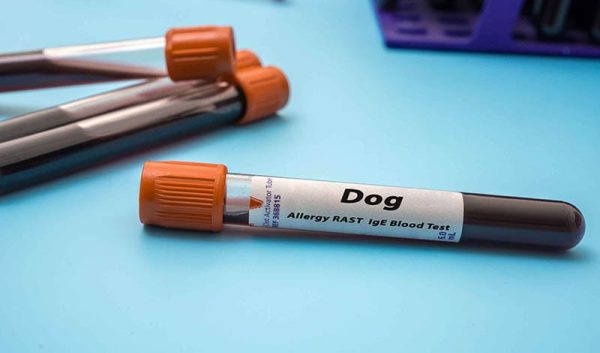In this article
A good quality complete and balanced diet, regular vet visits, a strong bond, and physical activity are essential aspects to keep your dog happy and healthy. But do you need to give supplements to your dog to keep them free from vitamin and mineral deficiencies? Do they need them to stay healthy?
While there are many supplements on the market that could help your dog in many ways, healthy dogs that are fed a complete and balanced diet do not require any supplements. Supplements can play an important role during times where your dog’s health has deteriorated, when they lack a specific molecule, or if they are recovering from illness. Supplements can help your dog’s coat, increase their appetite, help strengthen their joints and bones, relieve pain, or aid in chronic diseases.

What Are Supplements for Dogs?
The purpose of these products is to supplement the daily intake of nutrients when certain substances are missing or are not found in sufficient quantity in a dog’s diet or when a dog has specific nutritional requirements.
Supplements may contain vitamins, minerals, plant extracts, amino acids, enzymes, probiotics, prebiotics, and antioxidants.
Who May Need Supplements?
- Dogs with skin issues
- Dogs with digestive problems
- Aging dogs
- Dogs with chronic diseases
- Dogs with nutritional deficiencies
- Dogs placed on diets not natural to their species, such as a vegan diet
Should I Give My Dog Supplements?
Pet food manufacturers should formulate diets to provide all the essential nutrients that pets need to develop and thrive. Therefore, canines fed a high-quality complete and balanced diet usually do not need supplements unless their veterinarian recommends otherwise. Dogs that are fed inadequate, low-quality diets, for example, can develop nutritional deficiencies. These can be corrected with supplements of vitamins, minerals, amino acids, or antioxidants.
So, if your healthy dog is receiving good quality food that they tolerate and assimilate properly and that gives them all the nutrients that they need, do not change or supplement it because there is no need to do so! Otherwise, you risk making your dog sick and even putting them at risk of death (as can happen in the case of excessive vitamin D, which leads to toxicity)¹
If your dog is healthy and receiving an adequate diet, but you still want to give them supplements, contact your veterinarian first. If you prefer to cook for your dog instead of feeding them commercial diets, you will need the input of a nutritionist to elaborate on your dog’s diet and they may include vitamin, mineral, and amino acids supplements in their formula, since homemade diets are trickier to balance². If your dog is in their growth period (puppies up to 1-2 years) or is a senior, the vet may recommend supplementing their food with various vitamins and minerals.

The 6 Types of Supplements for Dogs
There are several types of supplements for dogs.
1. Calcium Supplements
All puppies, regardless of breed, have a fast growth rate in their first months of life, so calcium is one mineral that is specially necessary during this life stage to promote healthy bones among other vital functions. This is why puppy food contains higher levels of calcium and other nutrients, and why dogs should always be fed a diet specific for their life stage. With this in mind, it’s important to note that healthy puppies that are fed a complete and balanced puppy diet do not require any calcium supplementation, and doing so can be detrimental to their orthopedic (musculoskeletal) health. Supplementing your dog with calcium might be necessary when your dog suffers from hypocalcemia (low blood calcium levels), but should always be done under your vet’s guidance. Calcium must be in the right balance with vitamin D and phosphorus, otherwise serious health problems may occur. Never supplement your dog with calcium on your own—always ask your vet for guidance!
2. Supplements for Senior Dogs
Senior dog supplements contain a mix of vitamins, minerals, and antioxidants to help them with the cognitive decline that may occur with age. They can play a role in reducing the signs of aging, supporting brain health, and helping your dog enjoy life.

3. Supplements With Probiotics
Digestive health is essential to your dog’s well-being. Supplements containing probiotics, prebiotics, and digestive enzymes contribute to better absorption of nutrients, healthier gut flora, and aid with problems such as sensitivities or chronic diarrhea.
- Support the immune system
- Help eliminate smelling stools
- Help restore the microbiome after a course of antibiotics
- Speed up recovery from digestive problems and vomiting
- Reduce excess intestinal gas and bloating
4. Supplements for Joints and Cartilage Support
Joint pain can affect dogs of any age, though older dogs are more prone to osteoarthritis (degeneration of the joints). Arthritis in dogs is a common health problem and can go unnoticed for years, as your pet will not show any signs of pain and discomfort until they become severe.
Joint and bone supplements aid in relieving pain and discomfort and help dogs maintain mobility by reducing joint stiffness.
- Glucosamine
- Chondroitin sulfate
- Omega-3 fatty acids EPA and DHA
- Hyaluronic acid
- Methylsulfonylmethane (MSM)
These compounds help decrease inflammation and improve your dog’s body’s ability to strengthen and repair damaged tissues.
Consult your vet if you are planning to start giving your dog joint supplements.
5. Supplements for Skin and Coat Health
These supplements come in the form of oils, pills, or powder. Omega-3 fatty acids, found mostly in salmon or fish oil products for dogs, can be used for improving your pet’s coat and skin health under your vet’s guidance, especially when they have itchy and flaky skin and dull fur.

6. Supplements for Convalescent Patients
These supplements help dogs recover from digestive disorders such as gastroenteritis, pancreatitis, or other ailments, support rehydration, and increase appetite. They can also be recommended to anemic dogs or pets that have just undergone surgery for a faster recovery.
These products usually contain electrolytes, easily absorbable carbohydrates, amino acids, vitamins, minerals, and prebiotics.

Frequently Asked Questions (FAQ)
Are Dog Supplements Safe?
Dog supplements are safe as long as they are given under your veterinarian’s guidance. Even if the package states that they are natural, that does not mean they cannot make your dog sick or even kill them. Dogs that lead a healthy lifestyle and have an adequate complete and balanced diet do not require supplements unless your vet says otherwise.
If you need to speak with a vet but can't get to one, head over to PangoVet. It's our online service where you can talk to a vet online and get the advice you need for your dog — all at an affordable price!
How Many Supplements Are Too Many for My Dog?
Always respect the indications and dosage provided by your vet. If they did not tell you how many supplements to give your dog per day, follow the dosage written on the package specific for your dog’s age and weight. If you forgot a dose, give your dog the next one when you remember. If you are unsure whether you gave your dog their dose, just skip that day, and give them the next one as scheduled. Overdose can lead to diarrhea, vomiting, drooling, seizures, tremors, etc.
Can I Give My Dog Multiple Supplements at Once?
Your vet is the only one that can answer this question since they can evaluate the different types of supplements your dog is taking and the interactions between them. You also need to consider how they should be taken, as certain supplements can irritate your dog’s stomach. It’s typically recommended to administer these supplements after your dog has eaten.

Final Thoughts
Generally, healthy dogs that consume a complete and balanced diet do not need to take supplements. If you think that your dog needs them, though, talk to your veterinarian first. Although supplements are usually safe, an overdose can occur if you give your dog too many at once. Signs of overdose vary, but may include vomiting, diarrhea, excessive salivation, tremors, and seizures. Unsupervised supplementation might do a disfavor to your dog’s health, and in extreme cases, they can even lead to your pet’s death.
Featured Image Credit: Billion Photos, Shutterstock






















